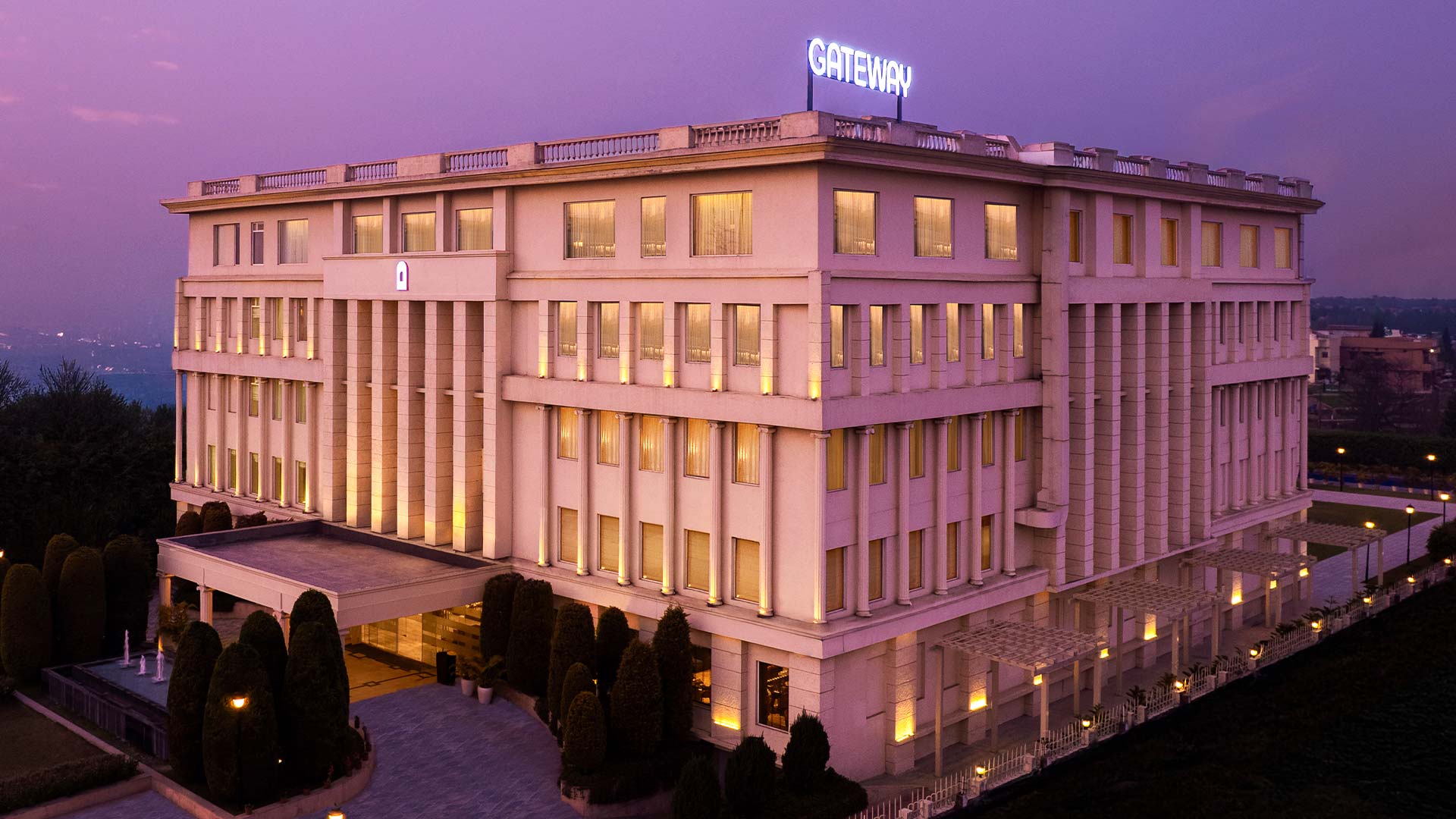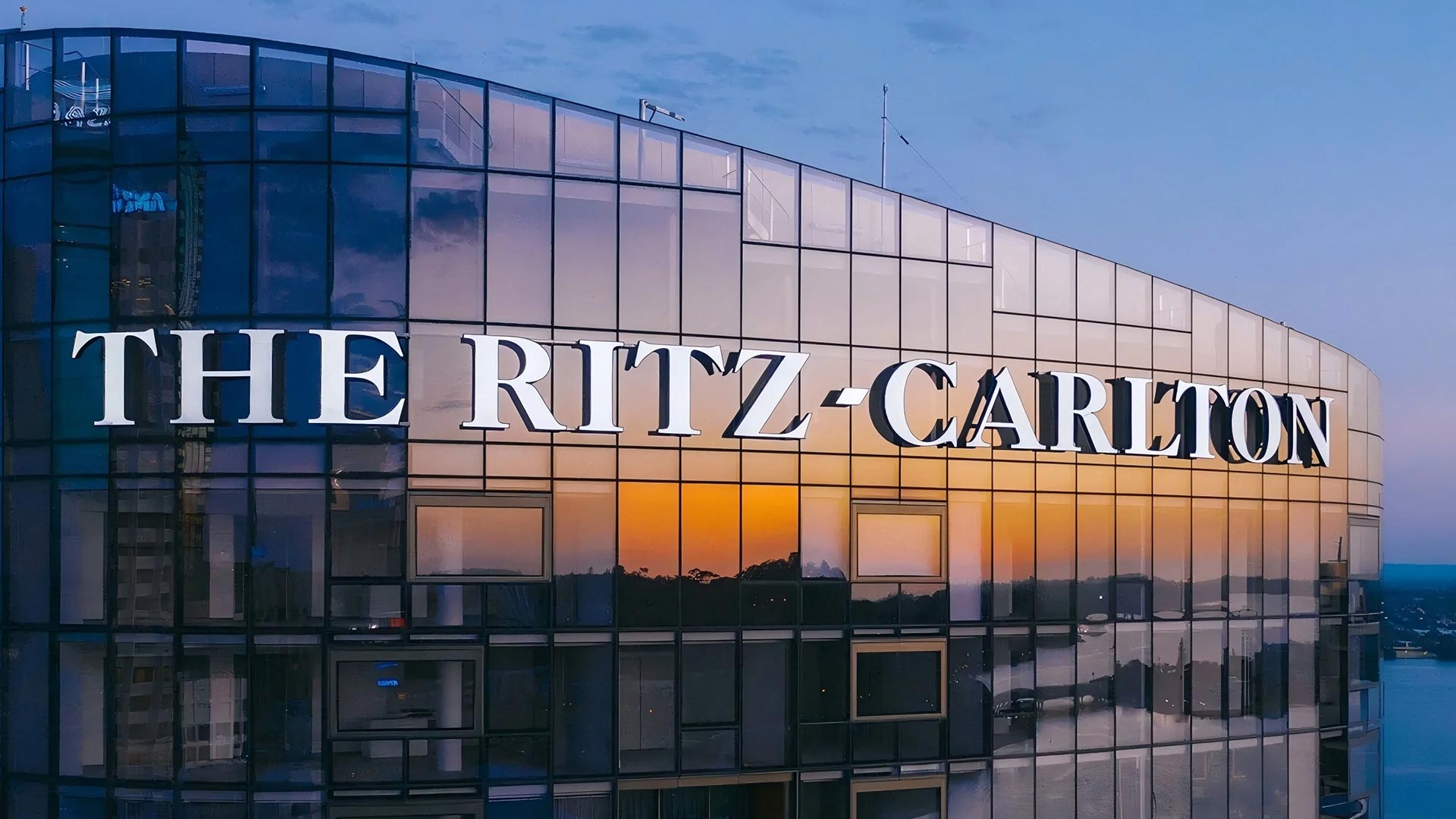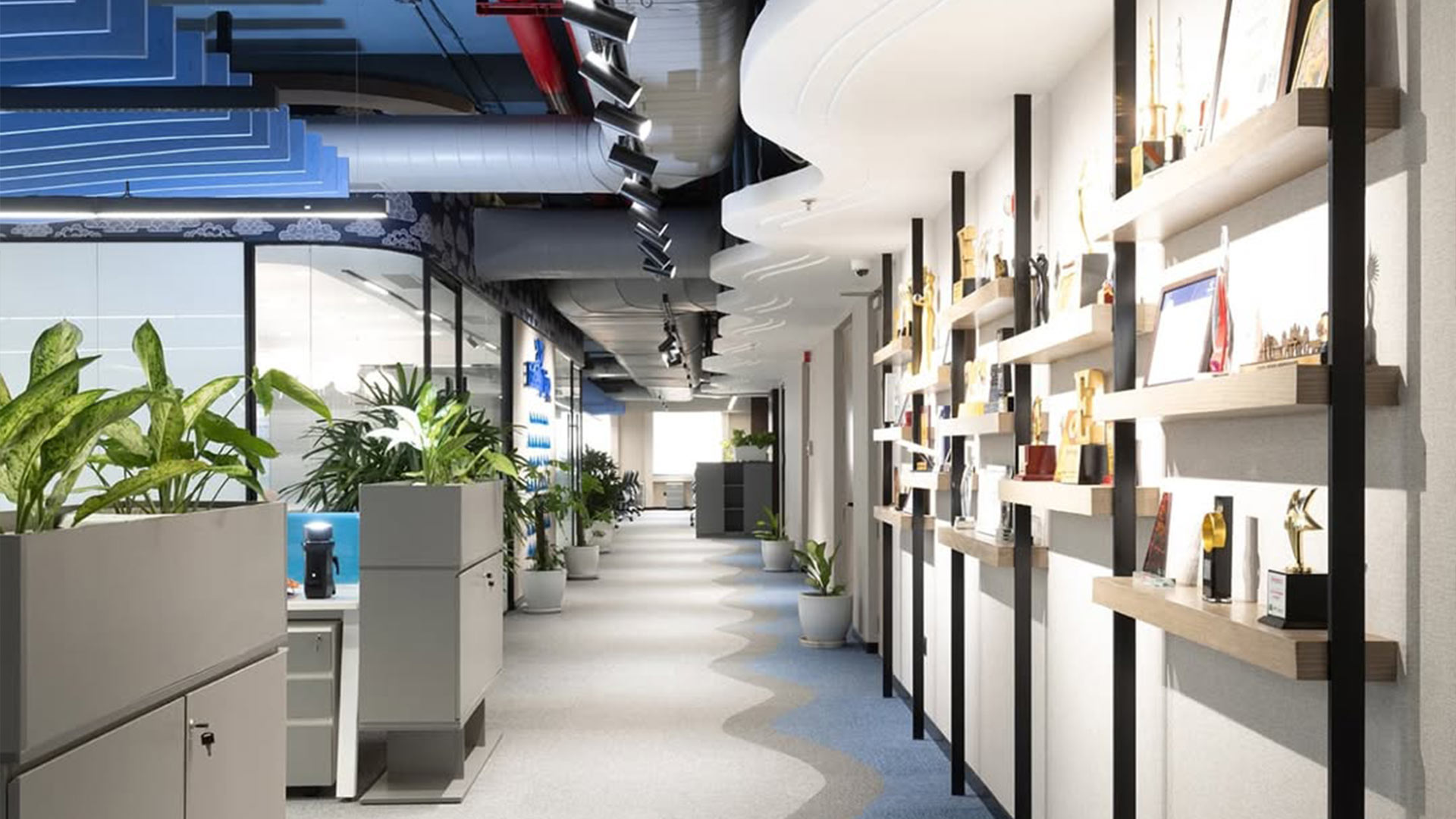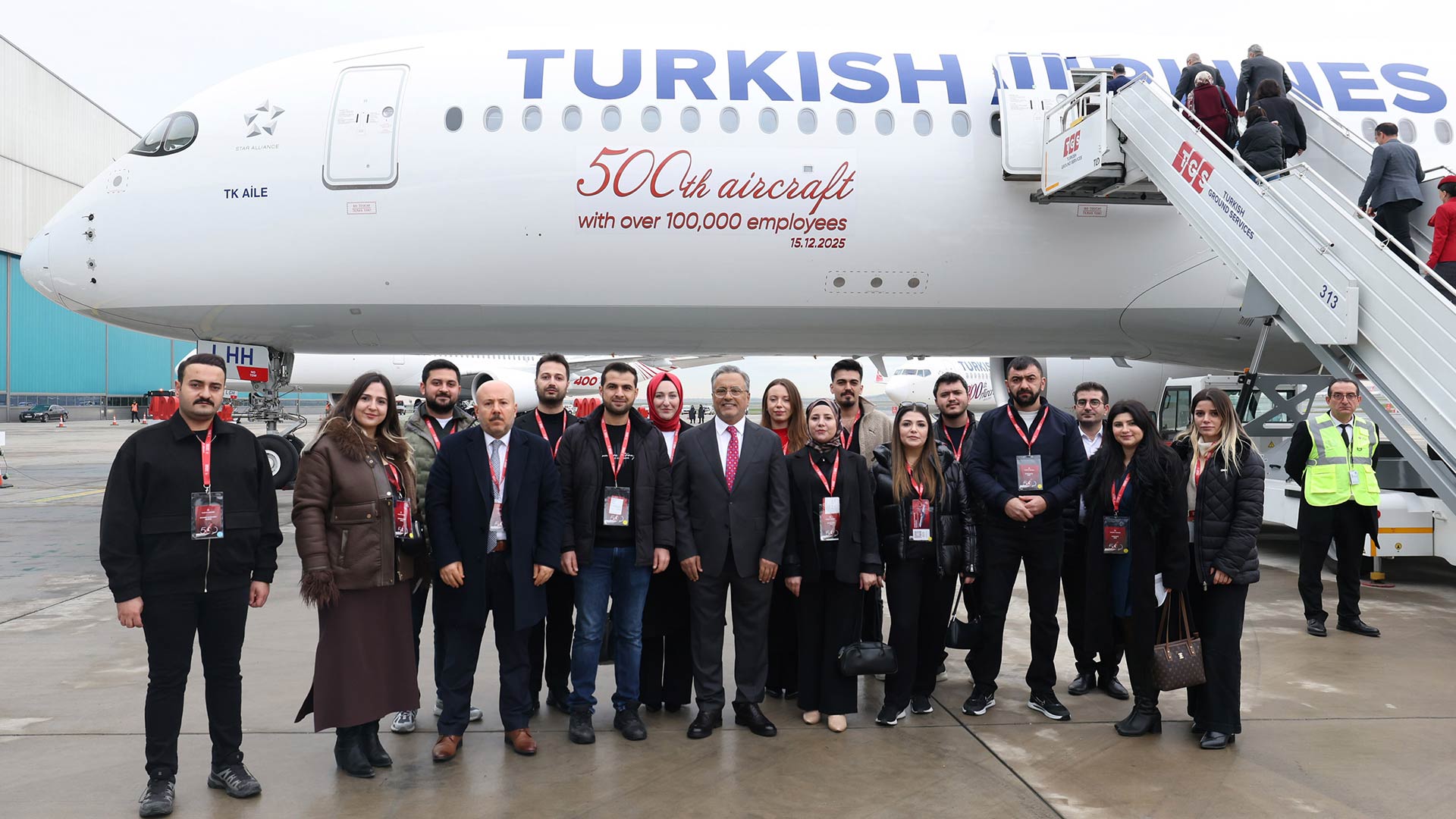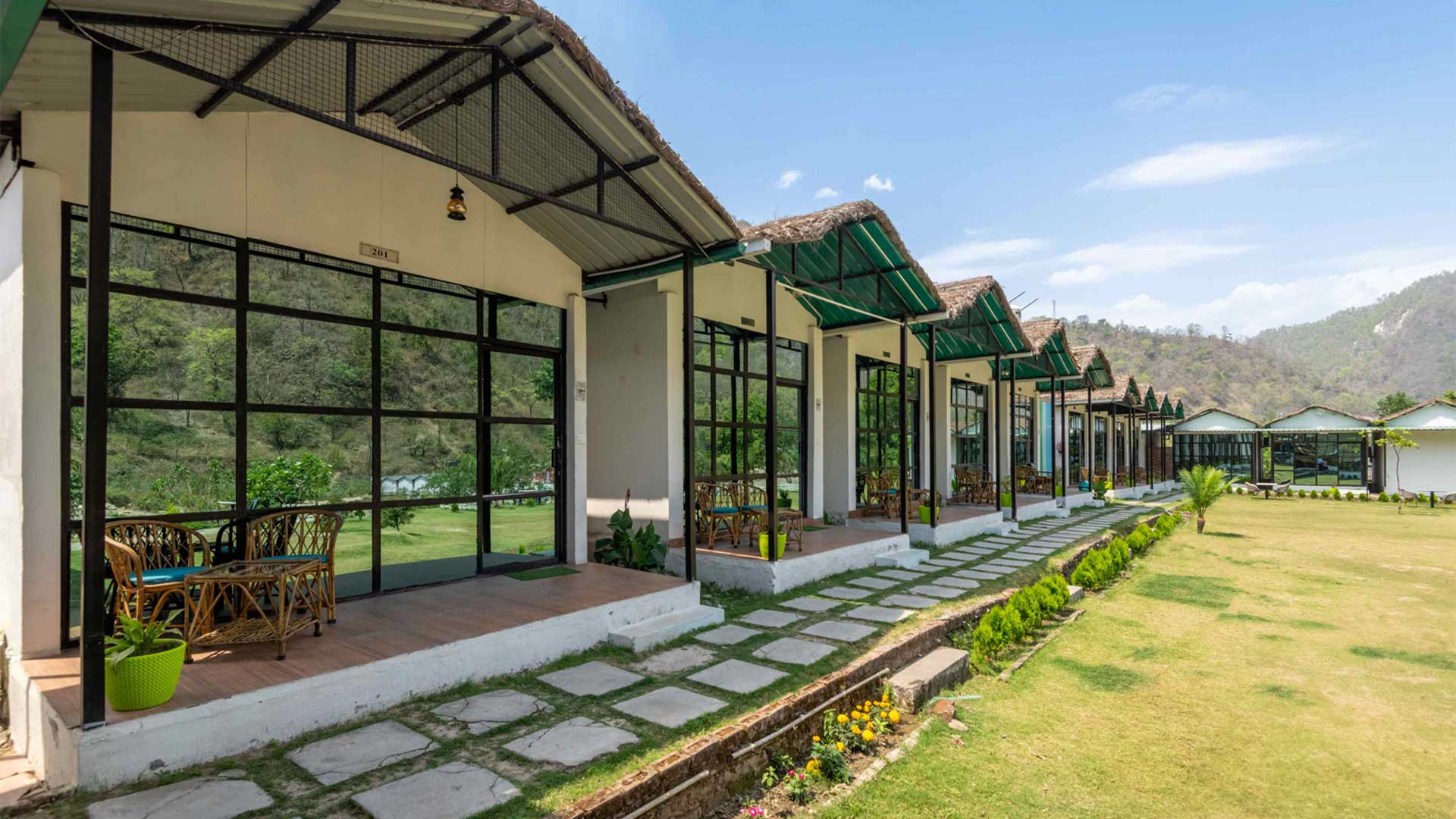World Tourism Day 2025: How Hospitality is Powering Tourism & Sustainable Transformation
This World Tourism Day 2025, SOH speaks to hospitality champions on their role and vision of responsible tourism and sustainable change.
By Rachna Virdi
This World Tourism Day 2025, the spotlight is on Tourism and Sustainable Transformation—a theme that emphasises how the hospitality sector is leading the way toward a greener, more inclusive future through green innovation, authentic cultural experiences, and advanced guest experiences.
This global initiative, led by the United Nations World Tourism Organisation (UNWTO), aims to foster global cooperation for sustainable, inclusive, and resilient tourism that benefits both people and the planet.
As the travel industry navigates the demands of the future, it is the hospitality sector that stands at the forefront of this change. Leading brands are demonstrating that sustainability is not just a responsibility—it is an opportunity to innovate, inspire, and elevate guest experiences.
From green innovation that minimises environmental impact, to cultural authenticity that connects travellers with local heritage, and next-generation guest experiences that combine technology, wellness, and immersive storytelling, hotels are redefining what responsible travel looks like.
We spoke to industry leaders across India to understand how they’re turning this vision into reality—one guest, one initiative, and one destination at a time.
IHCL: Sustainability as a Way of Life
“At IHCL Goa, sustainable transformation is not an initiative—it is a way of life. Guided by Paathya, we conserve resources, reduce our footprint, and celebrate Goan culture with authenticity. Tourism for us, is about creating meaningful experiences today while preserving the environment and empowering communities for tomorrow,” affirms Ranjit Phillipose, Senior Vice President – Operations, IHCL Goa.
Through its Paathya framework, IHCL has woven sustainability into the fabric of all its hotels and resorts in Goa. The focus is on ensuring that luxury exists in harmony with responsibility. Water conservation is driven through advanced sewage treatment plants, rainwater harvesting, and reuse systems, while bio-composting and zero-waste initiatives minimise environmental impact. The elimination of single-use plastics, replaced with planet-friendly alternatives, reflects this vision. Initiatives like the Bench of Dreams - benches crafted entirely from recycled bottle caps—symbolise IHCL’s belief in circular innovation and community contribution.
Green infrastructure adds another dimension. Several of its properties now house in-house water bottling plants to cut plastic consumption, solar panels to harness renewable energy, and EV charging stations that enable sustainable travel. Platforms such as Innergise conferences further reinforce IHCL’s role in shaping the dialogue on sustainable hospitality.
Equally vital is the preservation of cultural authenticity. IHCL celebrates Goa’s Indo-Portuguese legacy through architecture, cuisine, art, and curated experiences. Its collaboration with the Archaeological Survey of India to maintain the lower bastion of Fort Aguada is a testament to this commitment, complemented by skill-building programmes that empower local communities.
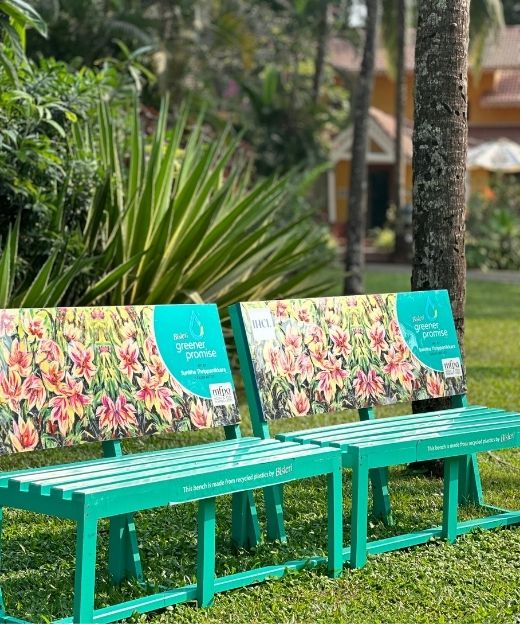
At IHCL, initiatives like the Bench of Dreams—benches crafted entirely from recycled bottle caps—symbolise the brand’s commitment to circular innovation and community contribution.
Radisson: Net Zero with Guest Delight
Radisson Hotel Group’s purpose-driven approach is guided by its ‘Think Planet’ and ‘Think Community’ ethos. “We are committed to being Net Zero by 2050, with our targets validated by science, and we continue to empower asset owners and teams through dedicated knowledge tools and technical expertise to achieve this vision. Already, around half of our hotels in India have adopted the Hotel Sustainability Basics framework, with the rest in the process of implementation,” explains Nikhil Sharma, Managing Director & COO, South Asia, Radisson Hotel Group.
Radisson’s sustainability journey spans across operations, from partnering with SunFuel Electric to install EV charging stations at their hotels, to re-purposing used cooking oil in line with FSSAI’s RUCO initiative, to closed-loop recycling of guest amenity bottles. “We are also embedding water-saving technologies, informed management plans, and infrastructure that supports natural cross-ventilation to cut down energy use,” adds Sharma.
Several of their properties stand as benchmarks. Radisson Resort & Spa Lonavala was designed using natural stone from the site and open atriums to reduce HVAC loads, while Radisson Blu Resort Kumbhalgarh is IGBC-certified and celebrates Rajasthan’s architectural heritage. In Bengaluru, one of the hotels has achieved LEED Platinum status powered entirely by renewable energy, and Radisson Blu Nashik has pioneered a group-captive energy contract.
Sharma adds, “These are not isolated measures but part of a consistent, group-wide transformation, proving that sustainability, cultural authenticity, and guest delight can go hand in hand.”
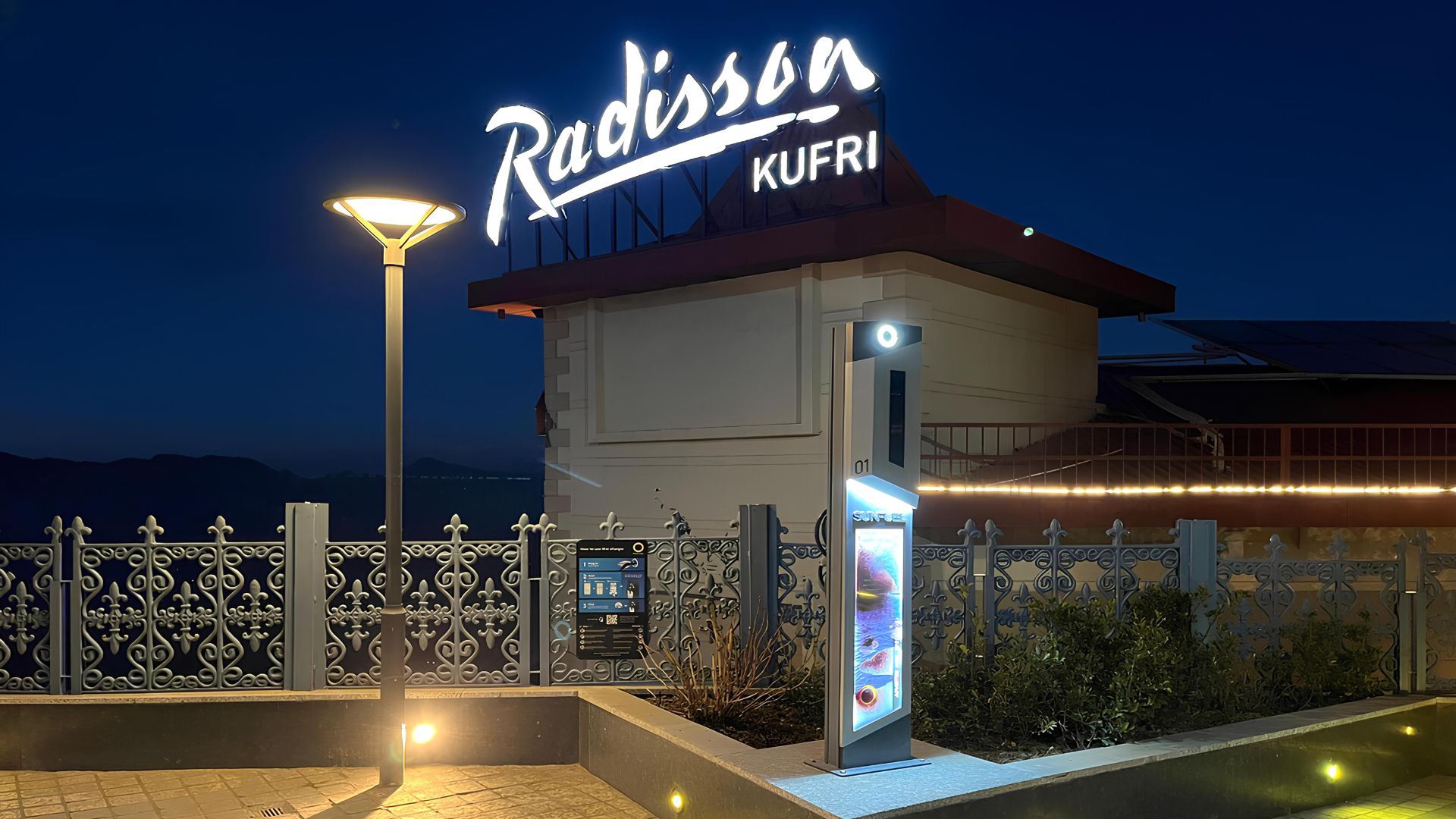
Most Radisson hotels have adopted the Hotel Sustainability Basics framework, with the remaining properties currently in the process of implementation.
Sarovar Hotels: Responsibility Built Into Every Room
Sarovar Hotels believes in future-ready hospitality rooted in responsibility for a greener tomorrow. The recently inaugurated Sarovar Portico Sriperumbudur is setting a new standard in sustainability.
Akshay Thusoo, Senior VP–Commercial, Sarovar Hotels, “At Sarovar Hotels, sustainability is not just a choice—it is central to how we envision the future of hospitality. Sarovar Portico Sriperumbudur is our first hotel with 100% single-use plastic-free guest rooms, energy-efficient lighting and HVAC systems, rainwater harvesting, water recycling, and eco-sensitive construction. We have replaced single-use plastics with glass water bottles, added purified RO water dispensers in every room, and introduced biodegradable amenities and packaging. Guest engagement programs like Friendlier Earth and Greener Planet further reflect our commitment.”
Sarovar Portico Sriperumbudur serves as a blueprint for their journey towards sustainable, future-ready hotels across India, ensuring that tourism growth goes hand in hand with environmental responsibility and cultural authenticity.
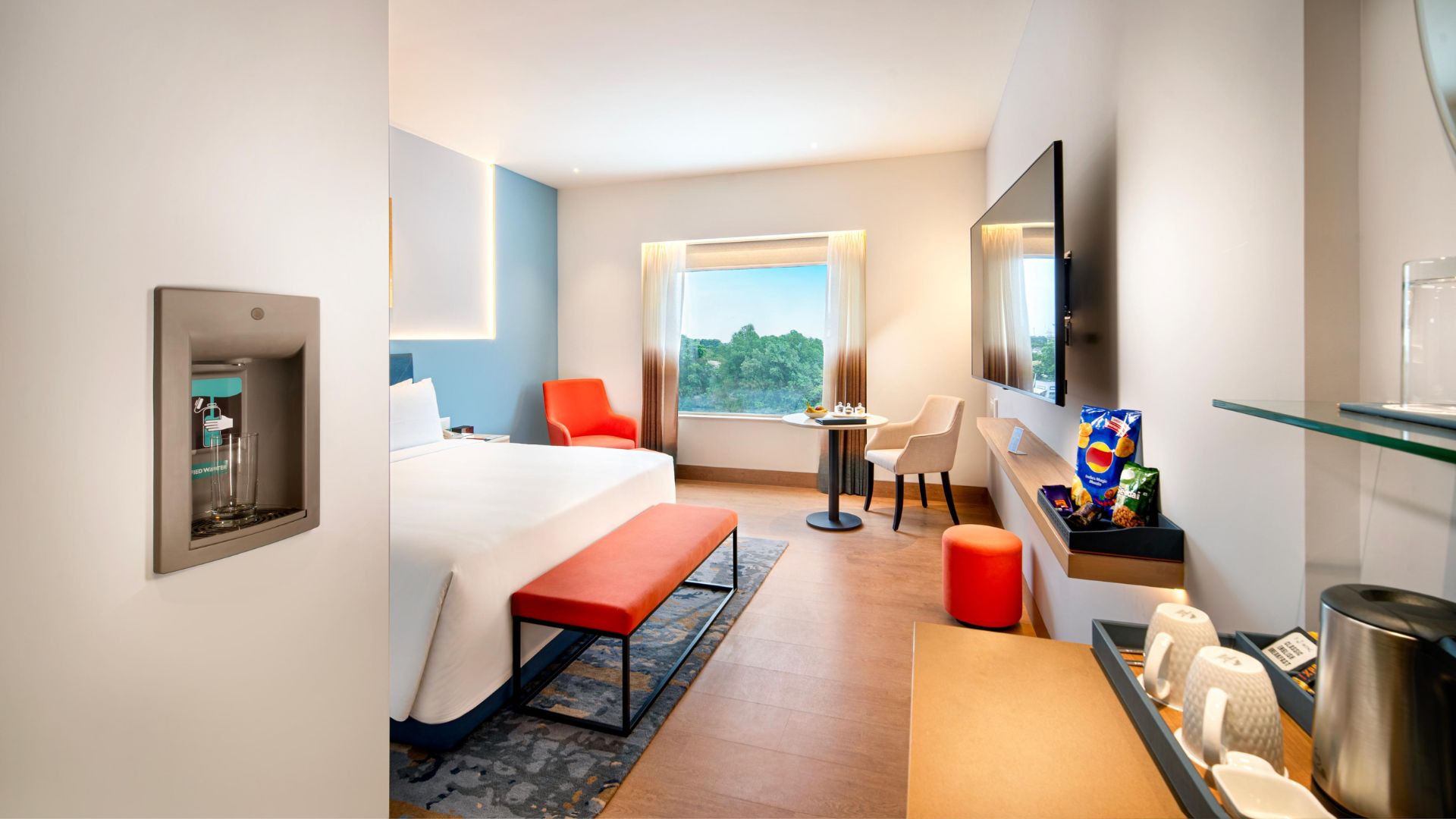
Sarovar Portico Sriperumbudur has eliminated single-use plastics by introducing glass water bottles and installing purified RO water dispensers in every room.
Net-Zero Goals, Local Roots: Marriott's India impact
Going by the Green Innovation theme, the hospitality sector is increasingly adopting eco-friendly practices, thereby promoting sustainable solutions and minimising the environmental impact of tourism.
Sheraton Grand Bengaluru Whitefield Hotel & Convention Center embeds sustainability into action by reducing water and energy use, sourcing renewable energy, and phasing out single-use plastics.
Sanjay Gupta, Chairman–MIBC & Multi-property General Manager, says, “We also track food waste through MESH while celebrating local culture with farm-to-table and heritage-led experiences. Marriott’s vision is to achieve Net-Zero greenhouse gas emissions by 2050, with a science-based 1.5°C target guiding reductions by 2030.”
He adds, “As Chairman of the Marriott India Business Council, I took this vision beyond one hotel, leading the plantation of over one lakh trees across 150+ Marriott hotels in India; proving that when we lead with purpose, we inspire collective responsibility.”
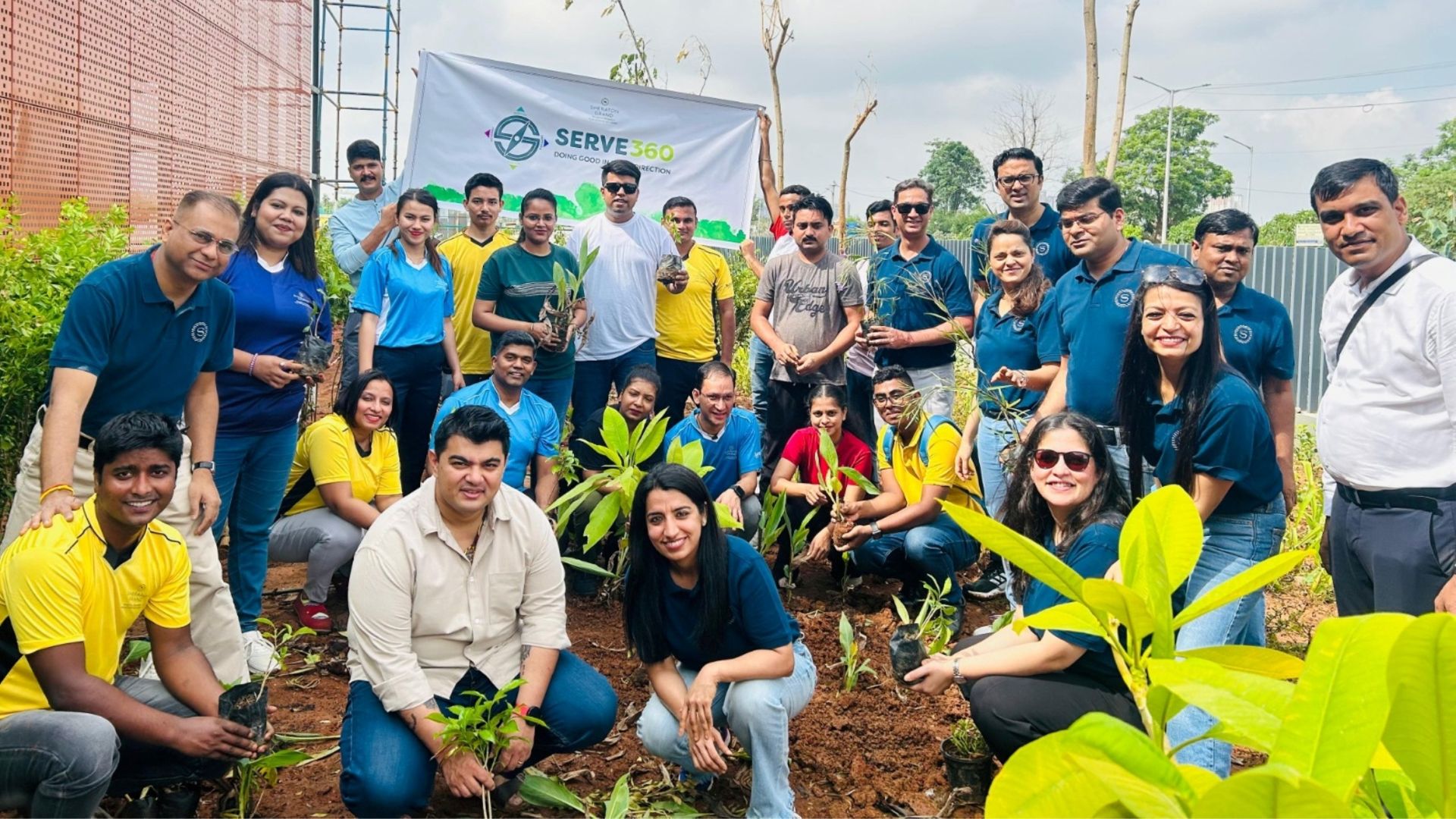
With the plantation of over one lakh trees across 150+ Marriott hotels in India, Marriott is demonstrating that leading with purpose can inspire collective responsibility.
Accor: Building Meaningful Journeys for Tomorrow
“World Tourism Day is a powerful reminder that the journeys we take should give back as much as they give us and that together we can shape a future where travel is not only memorable but also meaningful for generations to come,” believes Vineet Mishra, Accor, Vice President Operations, India & South Asia.
At Accor, sustainability goes beyond operations: it’s about protecting ecosystems, uplifting local communities, and ensuring that travel continues to inspire without depleting the world it shares. Tourism and sustainability must move forward together, and we are committed to making every guest experience part of that positive change.
Mishra adds, “We have seen that guests today actively seek out hotels that care for the environment, and this inspires us to do better every day. Each initiative we adopt helps us spark awareness and responsibility among travellers, whether it is through engaging guests in mindful dining across our hotels, zero-waste kitchens that use AI to track and reduce food waste, or in-house composting. We have eliminated guest-facing single-use plastics, are actively reducing carbon emissions across properties, and are investing in the future with the installation of EV car chargers at several hotels. Our Novotel partnership with WWF is another step towards protecting biodiversity and raising awareness among travellers. Many of our hotels also carry key green certifications, reflecting our commitment to measurable impact.”
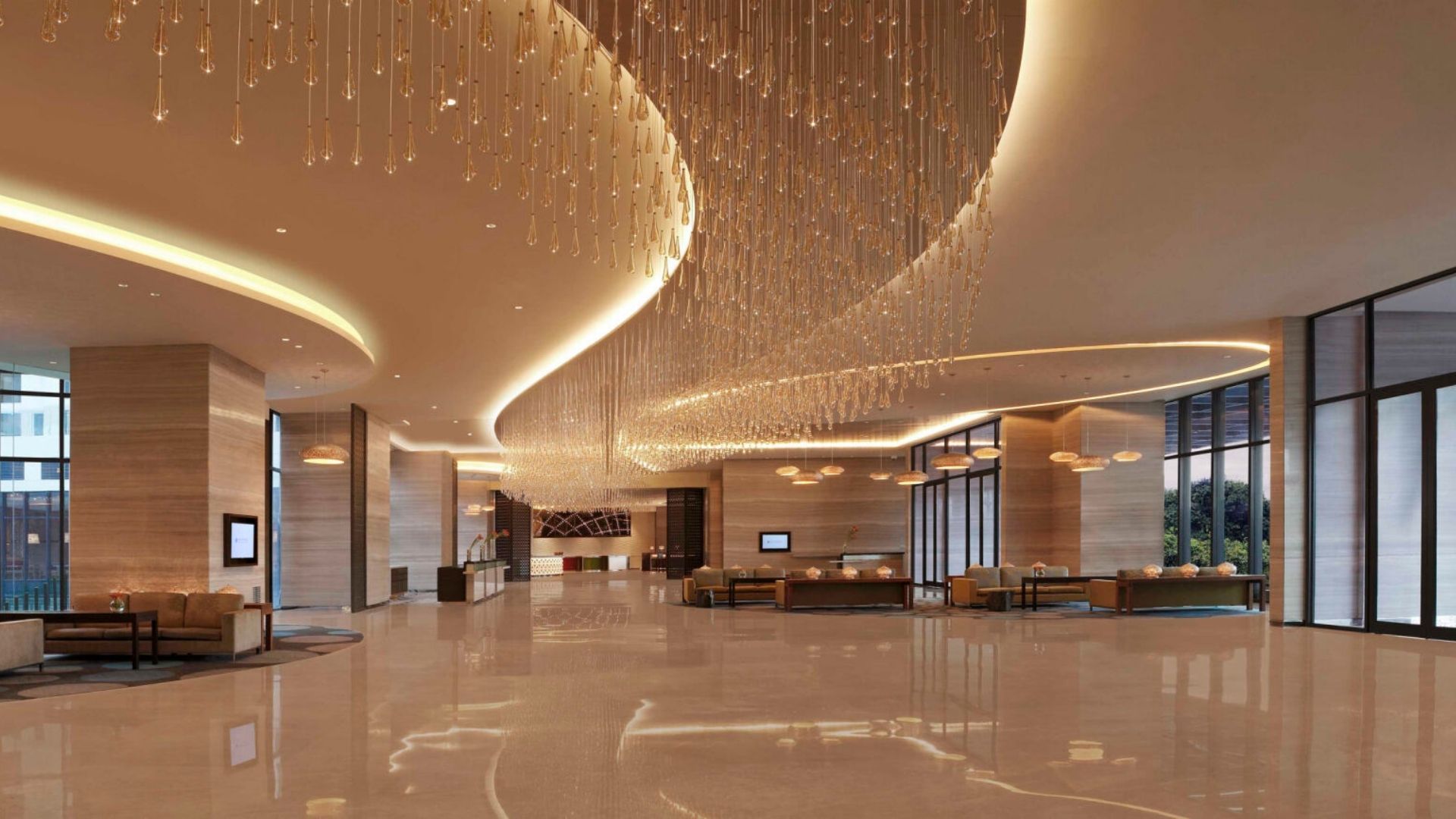
Many Accor hotels hold key green certifications, underscoring their commitment to measurable environmental impact.
Rajasthan’s Sustainable Icons of Luxury: Fairmont & Raffles
To ensure that tourism benefits local communities and preserves cultural heritage, Fairmont & Raffles Jaipur encourages authentic presentation and celebration of local cultures.
“Sustainable development is no longer a choice but the very foundation on which the future of tourism must be built. Our approach to sustainability is both holistic and deeply rooted in Rajasthan’s heritage. At Raffles Jaipur, we believe sustainability and luxury are inseparable, true luxury is not only about creating extraordinary experiences, but also about ensuring these experiences endure for generations to come,” elaborates Rajat Sethi, Cluster General Manager, Fairmont & Raffles.
From design itself, the hotel was conceived to maximise natural light and minimise energy use, while an 850 KWP offsite solar plant and 100% LED lighting help reduce our carbon footprint. Sethi adds, “We recycle over 80% of wastewater through a state-of-the-art STP for landscaping and irrigation, supported by rainwater harvesting and low-flow fixtures that cut water consumption by nearly 30%. Food waste is minimised through our no-buffet concept and managed through an in-house Organic Waste Converter that transforms biodegradable waste into nutrient-rich manure.”
The brand sees tourism as a force for good and places equal importance to its commitment to the community by prioritising local artisans and farmers in sourcing, supporting Rajasthani folk artists, and partnering in cultural preservation projects such as the Jaipur Centre of Art and Jaigarh Sculpture Park. Their CSR initiatives extend to school infrastructure, skill development, and cleanup drives at heritage sites.
At Raffles Jaipur, timeless luxury finds its truest expression when it contributes positively to both people and the planet, ensuring that indulgence and responsibility coexist harmoniously.
The Udaipur property reaffirms its dedication to sustainable transformation through green innovation and the preservation of cultural authenticity. From energy-efficient practices and responsible sourcing to celebrating the timeless traditions of Rajasthan through guest experiences, the stay blends luxury with responsibility and contributes to a sustainable future.
Rajesh Namby, General Manager, Raffles Udaipur states, “Our commitment to mindful hospitality is reflected in details—eliminating single-use plastics with our bottled water initiative, offering solar-powered energy boats for island access, and using eco-friendly cutlery to reduce waste. By sourcing locally, growing organic produce on- site, and collaborating with Rajasthani artisans, we honour the region’s heritage while fostering meaningful community impact.”
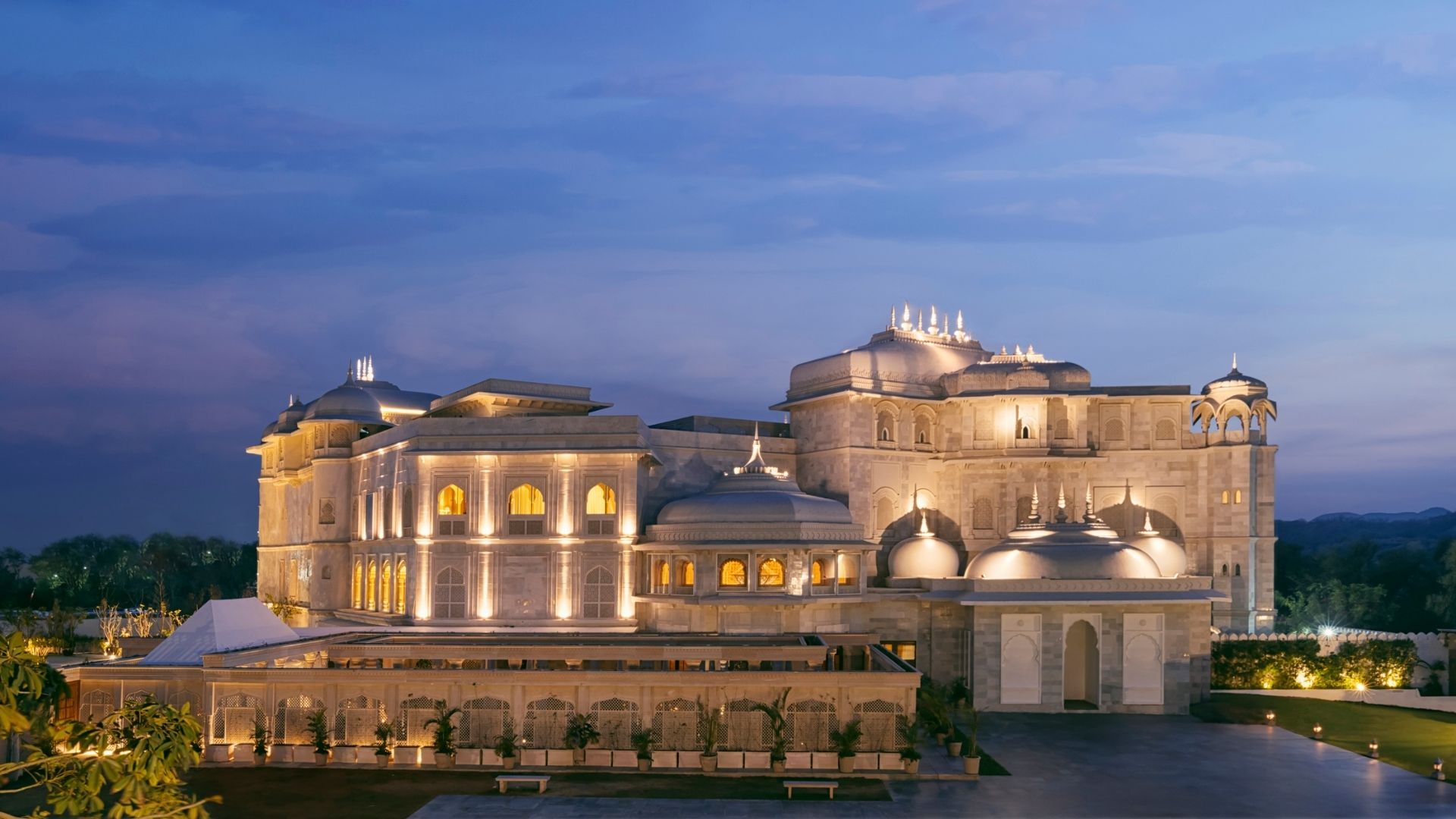
Designed to maximise natural light and minimise energy use, Raffles Jaipur reduces its carbon footprint with an 850 KWP offsite solar plant and 100% LED lighting.
Where Nature Meets the City: Sahara Star’s Eco Vision
The vision for sustainable tourism extends to creating immersive guest experiences that go beyond traditional offerings, incorporating technology and unique storytelling to connect guests with destinations in meaningful ways.
Hotel Sahara Star in Mumbai reflects how nature and modern hospitality can coexist in harmony. “It is a tropical lagoon and a symbol of our commitment to sustainable transformation. Besides being a serene retreat for our guests, it is a reminder that sustainable transformation is possible even in the most urban environments,” states Salil Fadnis, General Manager.
From conserving resources and reducing waste to curating local culinary experiences and supporting community artisans, their initiatives echo their belief in responsible tourism.
“On this day, we reaffirm our mission to redefine luxury as mindful and inclusive, ensuring every guest experience contributes to protecting our environment while celebrating culture and community,” he concludes.
So which of these sustainable hospitality journeys resonated with you the most? Join the conversation and share your thoughts below.
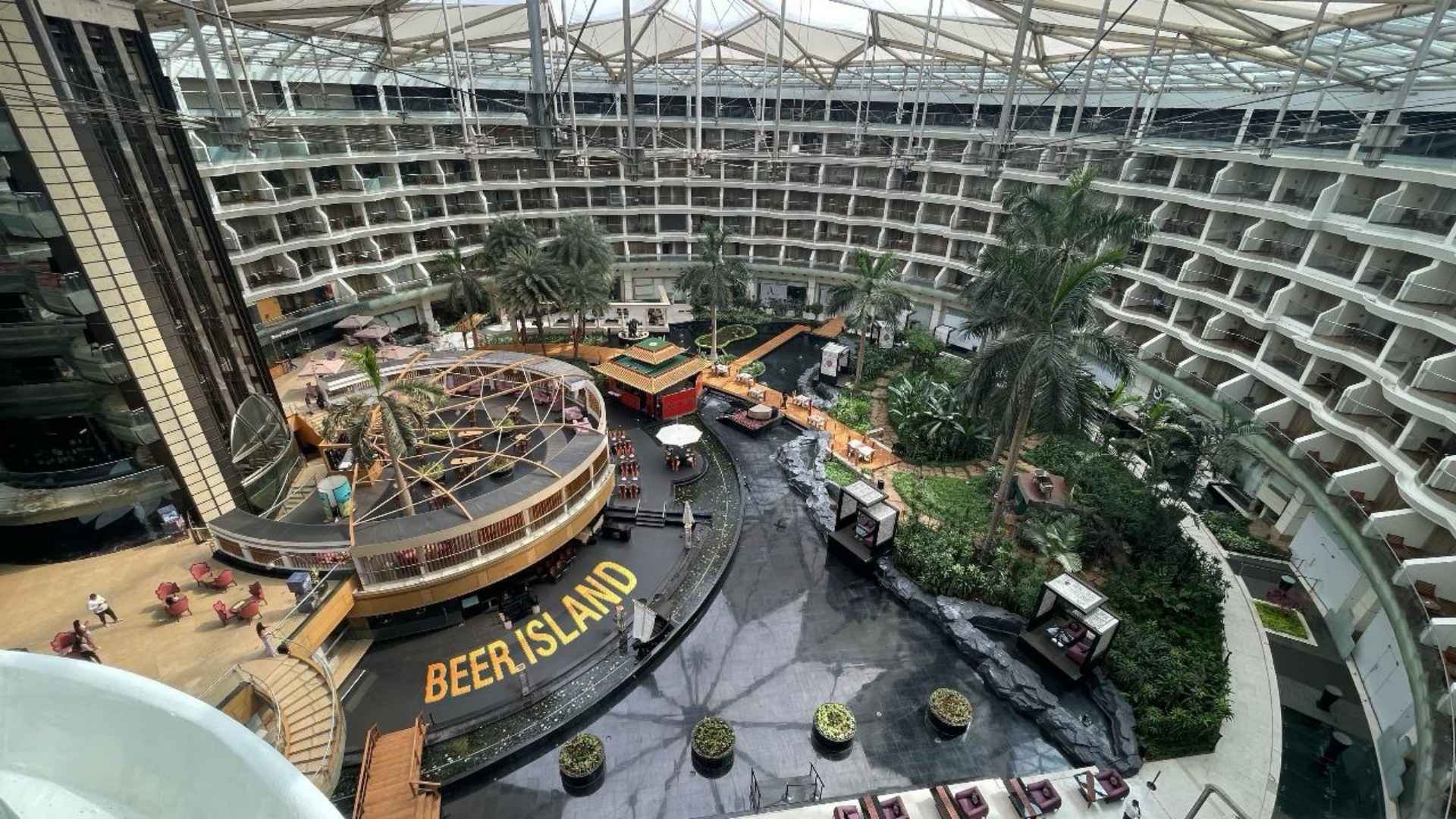
From resource conservation and waste reduction to promoting local cuisine and artisans, Sahara Star’s initiatives reflect its commitment to responsible tourism.



























